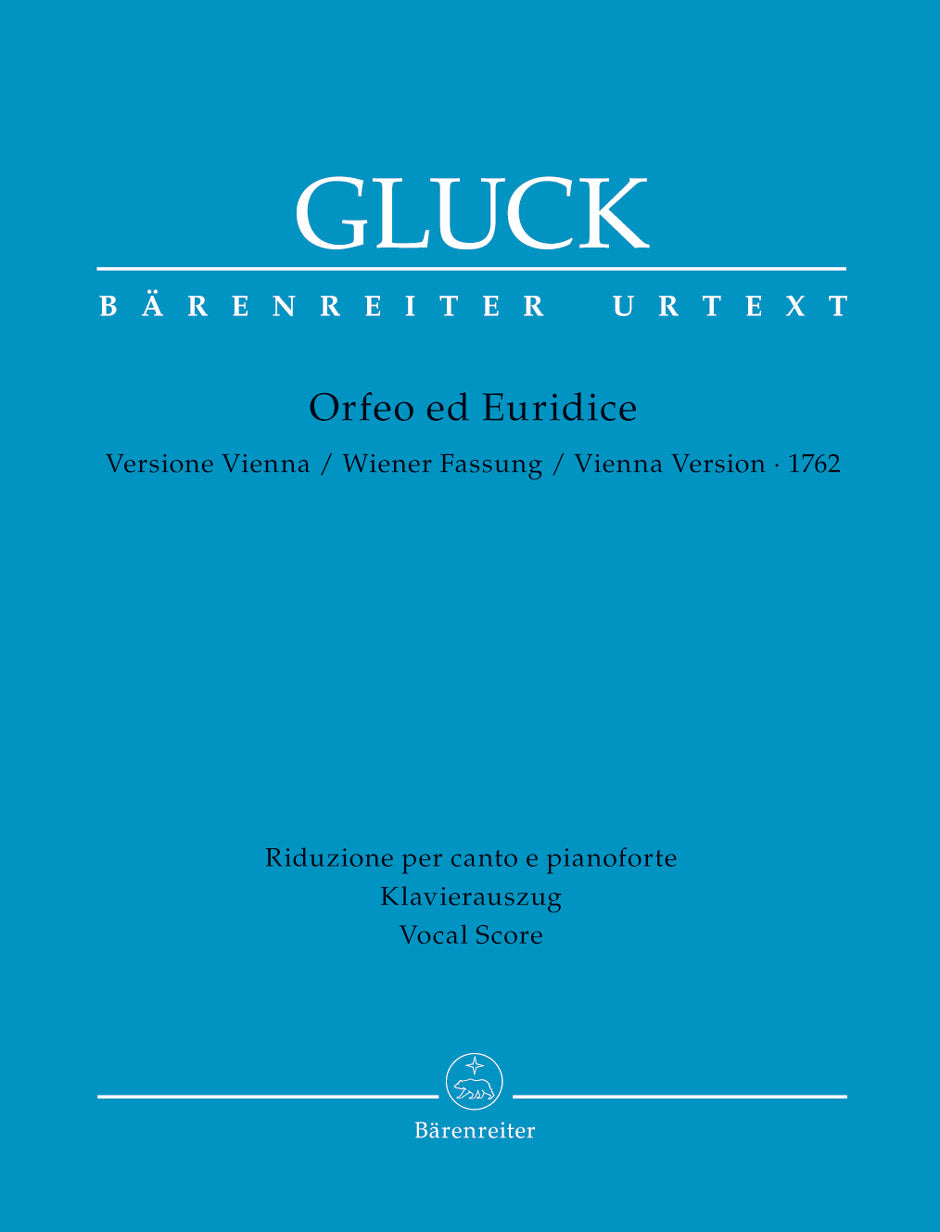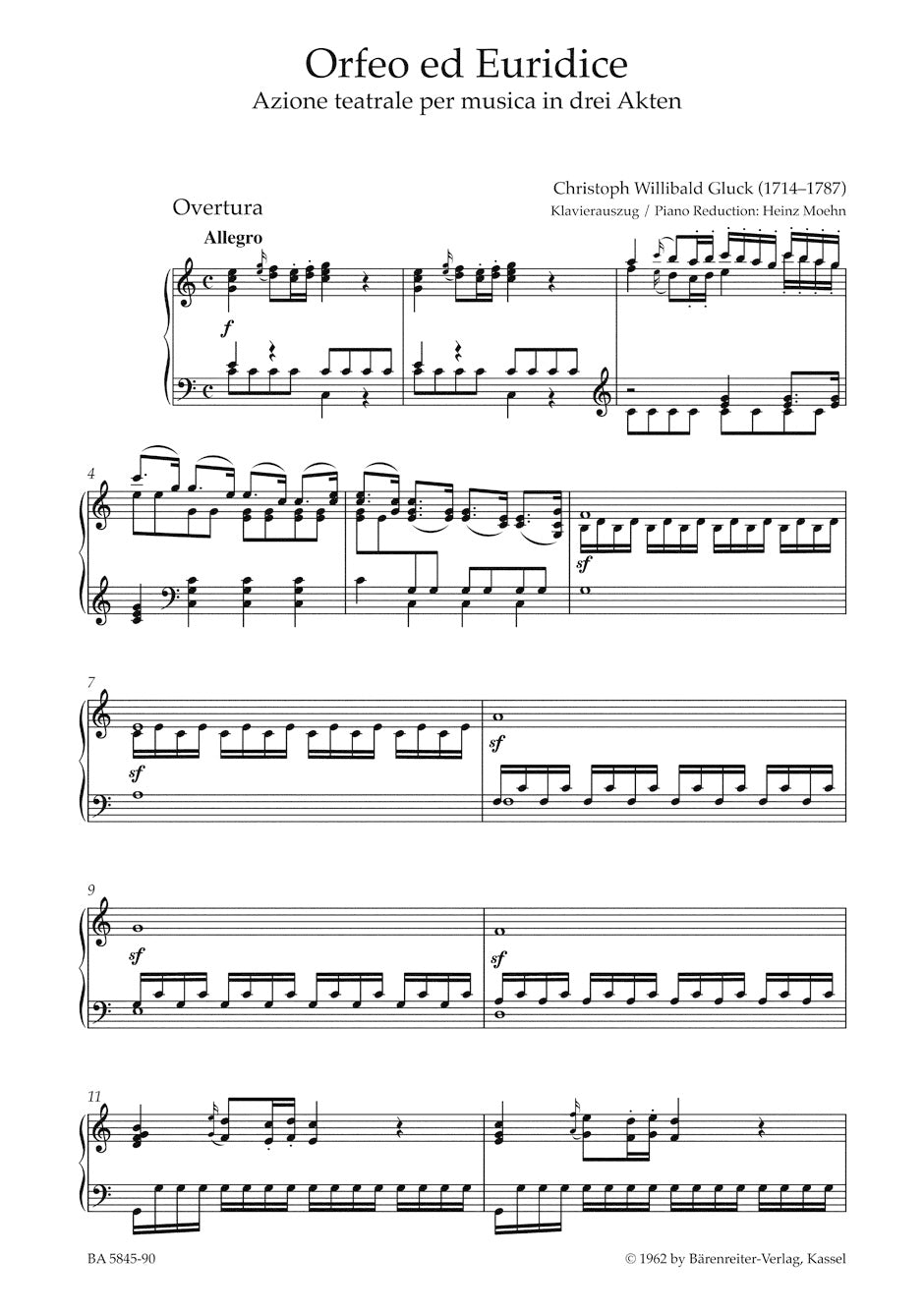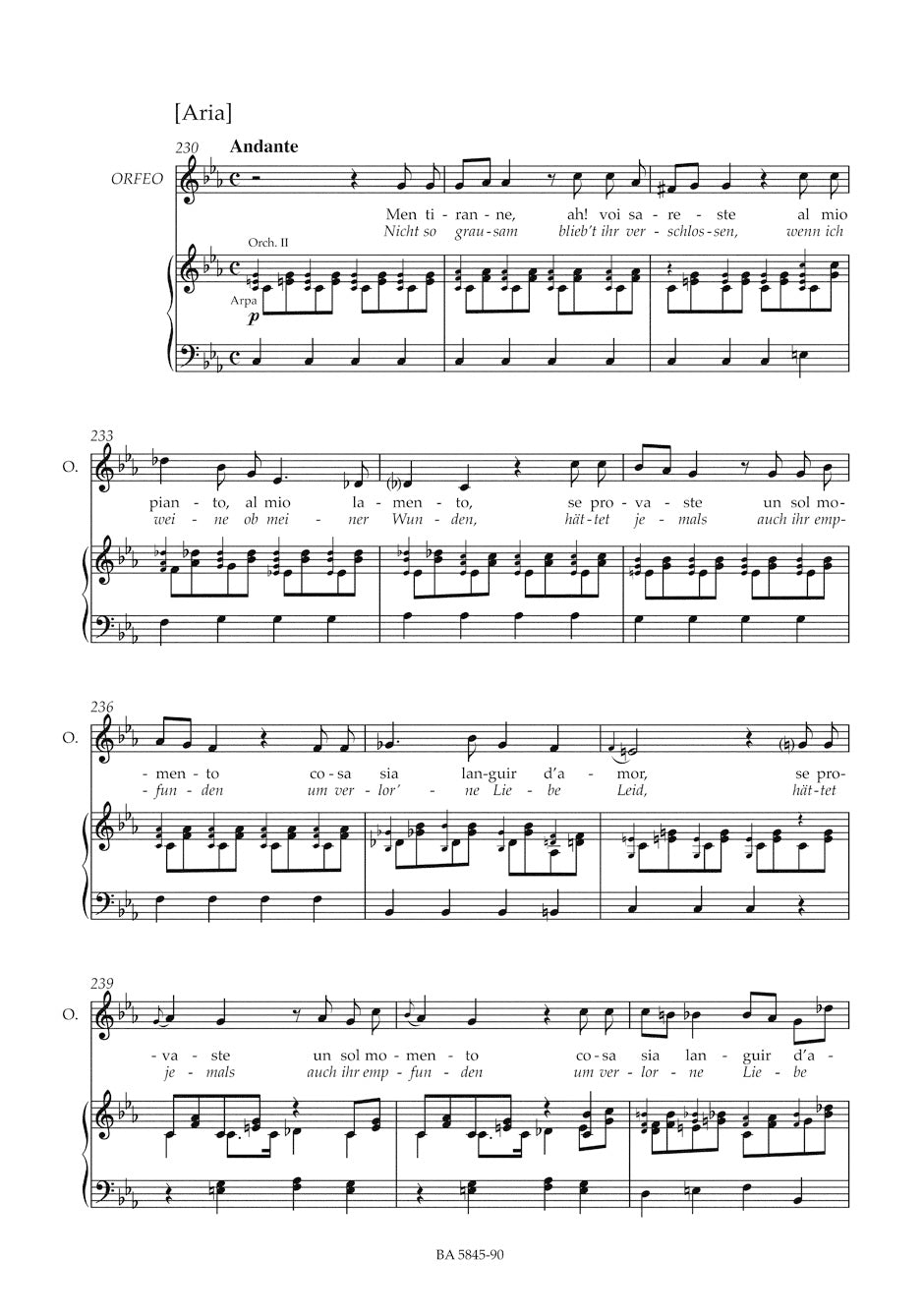


BARENREITER - 345062
Gluck Orpheus and Eurydice -Opera in three acts- (Vienna Version 1762)
Composer: Christoph Willibald von Gluck
Publisher: Bärenreiter
Instrumentation: Voice
Format: Vocal Score
Binding: Paperback
Dimensions: 10.6 in x 7.5 in
Pages: 164
Gluck Orpheus and Eurydice -Opera in three acts- (Vienna Version 1762)
Juilliard Store
144 West 66th Street
New York NY 10023
United States
Choose options
Gluck Orpheus and Eurydice -Opera in three acts- (Vienna Version 1762)
Juilliard Store
144 West 66th Street
New York NY 10023
United States
Gluck Orpheus and Eurydice -Opera in three acts- (Vienna Version 1762)
Juilliard Store
144 West 66th Street
New York NY 10023
United States
Editor: Abert, Anna Amalie / Finscher, Ludwig
Arranger: Moehn, Heinz
Orchestral scoring : 2SSolo/ASolo/Mixed choir-SATB/ballet/2Fl/2Cha/2Ob/2EnglHn/2bassoon/2Kor/2Hn/2Trp/3trombone/timpani/harp/2V/harpisc./Vc/double bass
Language(s) of work: I/D
Product format: vocal score, Urtext edition
Binding: Paperback
Pages / Format: XVI, 164 - 27,0 x 19,0 cm
With this work, the composer for the first time rejected the rigid conventions of the Italian opera seria and made an important first contribution towards the renewal of opera genre.
In collaboration with his librettist Calzabigi, Gluck reduced the plot to its essentials and freed it from the typical political and romantic intrigues which prevailed at that time. The choir takes on a larger role and the ballet is integrated into the plot. Solo and choral parts, instrumental music as well as pantomime and dance are closely connected. The style of singing has a natural simplicity and coloratura is largely abandoned. This stands in stark contrast to the vocal acrobatics of opera seria.
· Urtext edition based on the “Gluck Complete Works”
· Revised and newly set
· Italian libretto with singable German translation
· Comprehensive foreword (Ger/Eng/Ital) on the genesis of the work and its reception as well as on the plot
· Clear, idiomatic piano reduction
